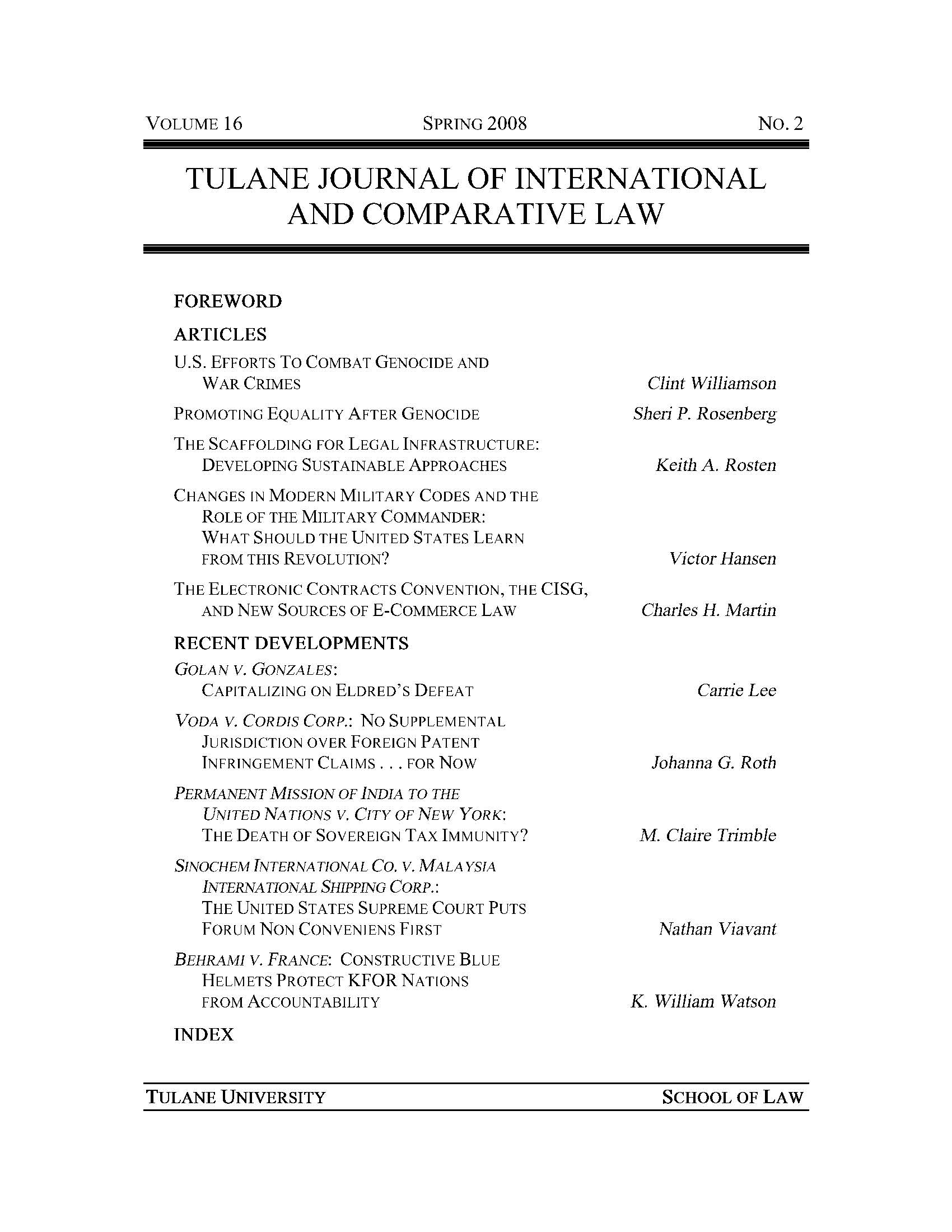The Electronic Contracts Convention, the CISG, and New Sources of E-Commerce Law
Abstract
Although no non-European Union convention focusing on international electronic
commercial contracts is currently in effect, such contracts are growing in number and importance
and do not exist in a legal vacuum. The Convention on Contracts for the International Sale of
Goods (CISG) has been interpreted by its Advisory Council to apply to such electronic contracts.
International law, based on general principles of good faith and equity and on customary
international law, is an existing and future source of international commercial electronic contract
law. Customary international electronic commerce law is derived from the general practices of
businesses contracting through electronic communications that are accepted as law, and from
international treaties and model laws, and their interpretations, which have been accepted as
authoritative descriptions of such practices. The United States will decide whether or not and how
to ratify the Convention on the Use of Electronic Communications in International Contracts
(CUECIC) that was proposed by it to the United Nations Commission on International Trade Law
(UNCITRAL) and was drafted and approved by UNCITRAL. CUECIC advances further than
existing law the legitimacy and functionality of international electronic commercial contracts. U.S.
ratification decision makers should recognize this advancement, reinforce the freedom of contract
norms promoted by CUECIC, and preserve the legitimacy of customary international law as a
supplement to the limited contract formation rules of CUECIC.
